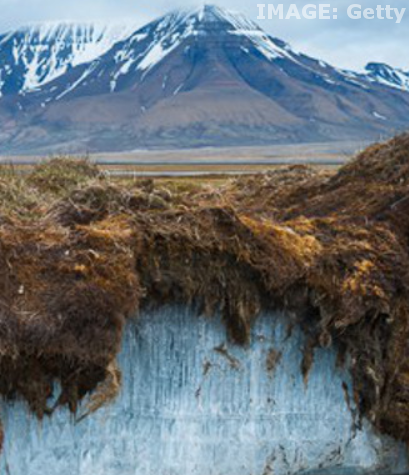Arctic thaw surprises scientists
 Permafrost in the Arctic is thawing 70 years earlier than predicted.
Permafrost in the Arctic is thawing 70 years earlier than predicted.
A recent expedition team says it was astounded by how quickly a succession of unusually hot summers had destabilised the upper layers of giant subterranean ice blocks that have been frozen solid for millennia.
“What we saw was amazing,” said Vladimir Romanovsky, a professor of geophysics at the University of Alaska Fairbanks.
“It’s an indication that the climate is now warmer than at any time in the last 5,000 or more years.”
The research team flew modified planes to exceptionally remote sites, including an abandoned Cold War-era radar base over 300km from the nearest human settlement.
The experts say they saw a landscape that was unrecognisable from the pristine Arctic terrain a decade or so earlier.
Dr Romanovsky said it was a grim sign.
“It’s a canary in the coalmine,” said Louise Farquharson, a postdoctoral researcher and co-author of the study.
“It’s very likely that this phenomenon is affecting a much more extensive region and that’s what we’re going to look at next.”
There is great concern about the stability of permafrost, due to the risk that rapid thawing could release vast quantities of heat-trapping gases, fueling even faster temperature rises.
Scientists say the even if current emissions-cutting targets are met, the world would still be at risk of these kinds of feedback loops triggering runaway warming.
“Thawing permafrost is one of the tipping points for climate breakdown and it’s happening before our very eyes,” said Jennifer Morgan, executive director of Greenpeace International.
“This premature thawing is another clear signal that we must decarbonise our economies, and immediately.”







 Print
Print